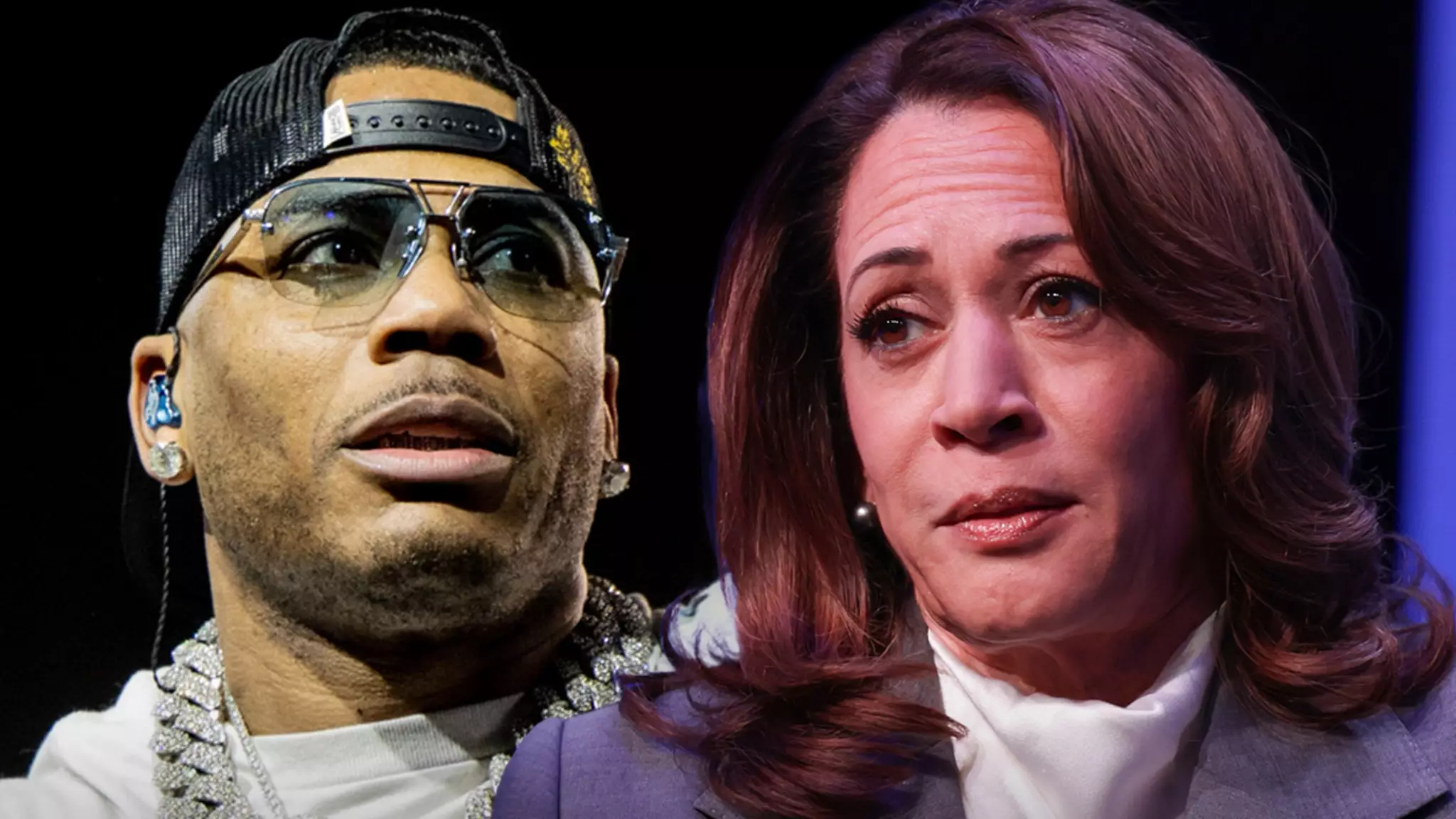In an era where public figures are often expected to toe a particular ideological line, Nelly’s recent choices and outspoken attitudes have ignited fierce debates within the African American community. The rapper, widely known for his early 2000s hits like “Country Grammar,” stirred controversy after performing at Donald Trump’s inauguration event, a move that many interpreted as a betrayal of his racial identity. However, Nelly is resolute in defending himself, asserting that his actions and charitable efforts towards Black communities ultimately speak louder than traditional political affiliations. This confrontation presents a compelling case study on the evolving dynamics of political loyalty and identity among Black celebrities.
Redefining What It Means to Be Pro-Black
Nelly’s argument hinges on his contributions to Historically Black Colleges and Universities alongside fellow artist Snoop Dogg, suggesting tangible support rather than symbolic political gestures. By contrasting his visible philanthropy with what he perceives as the failures or performative politics of mainstream Black political figures, Nelly challenges the assumption that allegiance to the Democratic Party is synonymous with Black empowerment. His criticism of Kamala Harris and personal remarks about her interracial marriage are provocative and borderline divisive, but they underscore his frustration with what he sees as a sanitization or commercialization of Black leadership.
This perspective reframes pro-Blackness from a purely partisan stance into a nuanced debate about accountability, visibility, and effectiveness. Nelly’s willingness to critique established Black political icons uncovers an uncomfortable truth: Black communities are not monolithic, and political identity is complex, even among prominent voices.
Backlash and the Politics of Authenticity
Nelly’s openness has drawn sharp rebukes not only from fans but also from those closest to him, such as Ashanti’s mother, who criticized his political views during the “We Belong Together” reality show. This clash within his immediate circle symbolizes a broader cultural conflict about expectations placed on Black public figures. Notably, Ashanti herself appears ambivalent, recognizing the financial benefits of her husband’s stance but seemingly wary of the social repercussions.
The barrage of accusations branding Nelly and Snoop Dogg as “Uncle Toms” or worse reveals the intense scrutiny Black celebrities face when deviating from dominant narratives. It also highlights the dangerous oversimplifications that often reduce complex political debates to personal attacks and racial loyalty tests, alienating voices that don’t conform to groupthink.
The Risk and Reward of Political Independence
There is an implicit bravery in Nelly’s defiance of the expected script, even if his rhetoric sometimes skews toward inflammatory. By refusing to be pigeonholed, he forces his audience to confront uncomfortable questions about authenticity, class, and the real metrics of racial progress. This stance doesn’t just invite criticism—it invites important dialogues about how Black success is measured and who gets to define it.
Yet, this position comes with clear risks: alienation from core fan bases, strained personal relationships, and the potential for being pigeonholed as a divisive figure. However, as society becomes increasingly fractured politically and culturally, perhaps figures like Nelly help illuminate the messy realities of identity politics within marginalized communities, reminding us that loyalty cannot be presumed or coerced, but earned and debated openly.

